Following the untimely death of President Hage Geingob on the 4th February 2024, Namibia faces a pivotal moment in its political history, raising critical questions about the future direction of the nation.
Namibia, familiar with the experience of loss, confronts an unprecedented event: the death of a sitting president which casts a shadow of uncertainty as the country gears up for elections in November 2024.
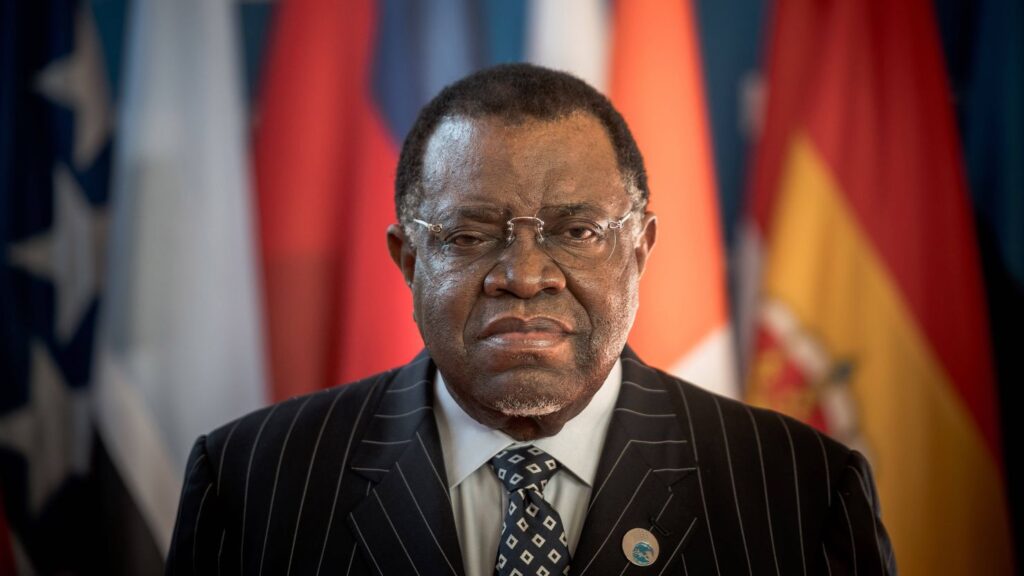
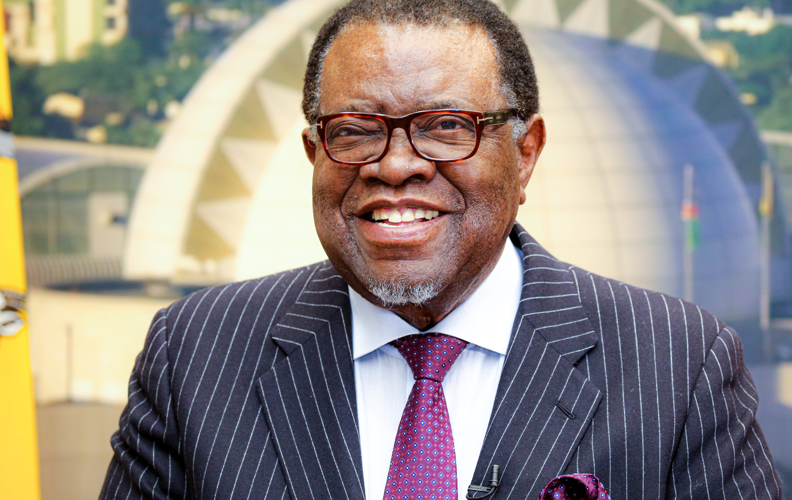
The implications extend beyond personal grief, impacting the core of the nation’s democratic processes.
As the nation collectively griefs and comes to terms with its new reality there is understandable concern as to what transpires next for the country.
In the face of such a significant loss, the [law] Namibian Constitution does not wait, initiating the legal process to appoint a new leader and ensure the continuity of governance.
Former Vice President Nangolo Mbumba has now officially assumed the role of Namibia’s fourth President.
This transition occurred following the passing of President Hage Geingob, with Chief Justice, His Lordship Peter Shivute, conducting the swearing-in ceremony.
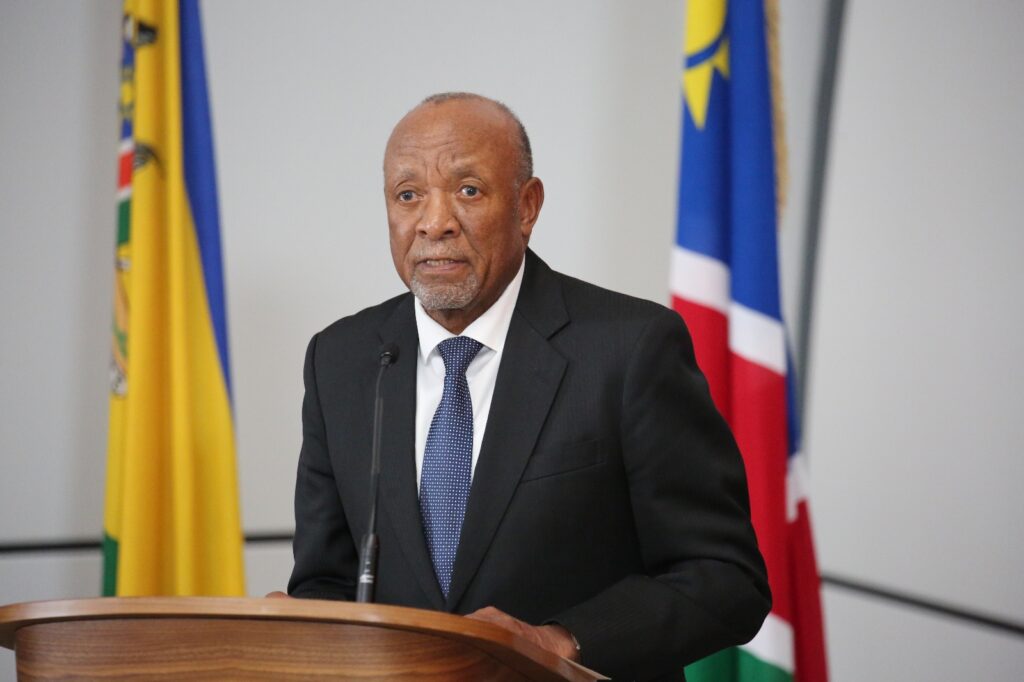
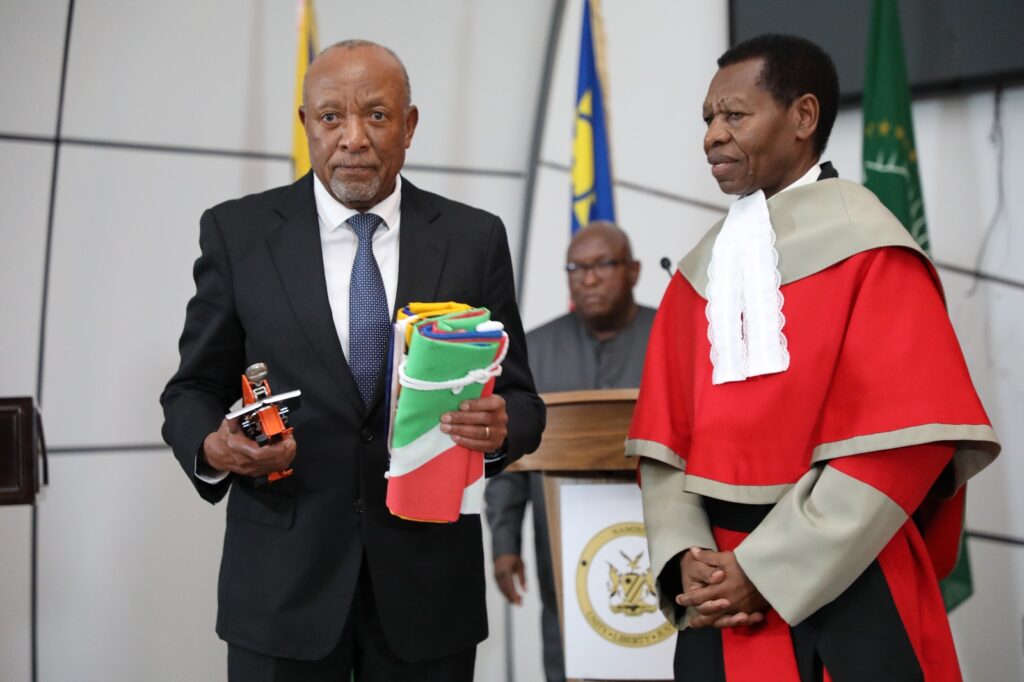
President Nangolo Mbumba and Chief Justice, His Lordship, Peter Shivute.
President Nangolo Mbumba is the first Namibian president who did not come to office through election but, rather, followed constitutional provisions in assuming the position.
Did you know?
What Namibia is currently experiencing, the United States has encountered before. Since the establishment of the U.S. presidency in 1789, 45 people have been president. Eight (8) of them died while in office. Each time, the vice president took over.
In Africa, names like Muammar Gaddafi of Libya (October 20, 2011), Michael Sata of Zambia (October 28, 2014), Bingu wa Mutharika of Malawi (April 5, 2012), Meles Zenawi of Ethiopia (August 20, 2012), and Idriss Deby of Chad (April 20, 2021) have all faced similar situations.
Following the swearing-in of the newly appointed President, citizens have taken to social media to express their pride in the swift and seamless transition to a new leader.
The Constitutional Framework
The Constitution of Namibia is the supreme law of Namibia as per Article 1(6).
This means that all laws and persons in Namibia are subject to the constitution.
Furthermore, the constitution outlines the principles and guidelines that govern Namibia’s political processes, including the procedures to be followed in times of presidential transition.
An in-depth analysis of Article 34 in Namibia’s Constitution
In an interview with Afterbreak Magazine, political analyst Rui Tyitende and legal pundit Fedden Mainga Mukwata clarified the constitutional intricacies surrounding the transition.


As outlined in Article 34, the order of succession dictates that (a) the Vice President; (b) the Prime Minister; and (c) the Deputy Prime Minister shall be appointed in that sequence to act as President for the remaining portion of the President’s term of office.
Tyitende clarifies the constitutional intricacies, stating, “the constitution clearly states that presidential elections are only to be held within 90 days of the office of the president becoming vacant, if said vacancy occurs more than one year before scheduled presidential elections.”
The crucial question to be asked here is whether the death occurred more than or not more than one (1) year before the date on which presidential elections are required to be held.
Mukwata, an admitted legal practitioner of the Supreme Court supported this by stating, “it is not clear exactly when elections will be held this year, but according to an advertisement by the Electoral Commission of Namibia (ECN), “The Electoral Commission of Namibia (ECN), in accordance with its mandate under the Electoral Act, Act No. 5 of 2014, will be conducting a General Registration of Voters and subsequently Presidential and National Assembly Elections scheduled for later in the year 2024.”
He further states that this means that regardless of the exact date on which presidential elections will be held, it will be this year, and therefore, the death has occurred not more than one (1) year before such date, bringing into application the provisions of Article 29(4)(a): The vacancy shall be filled in accordance with the provisions of Article 34.
Tyitende endorsed this assertion by stating, “therefore, as provided for by Article 34, His Excellency Dr. Nangolo Mbumba will succeed the late president for the remainder of his unexpired term, until presidential elections take place as scheduled and a new president is inaugurated on March 21, 2025.”
Minister of International Relations and Cooperation position becomes vacant
Following the death of President Hage Geingob and the subsequent swearing-in of President Nangolo Mbumba, there’s been a constitutional change in Namibia with key appointments.
President Nangolo Mbumba, has adhered to the constitutional process by appointing the new Vice President to take up the vacant position.
This constitutional progression has ushered in a historic moment as Honorable Netumbo Nandi-Ndaitwah, who previously held positions as Minister of International Relations and Cooperation, and Deputy Prime Minister, becomes Namibia’s first female Vice President.
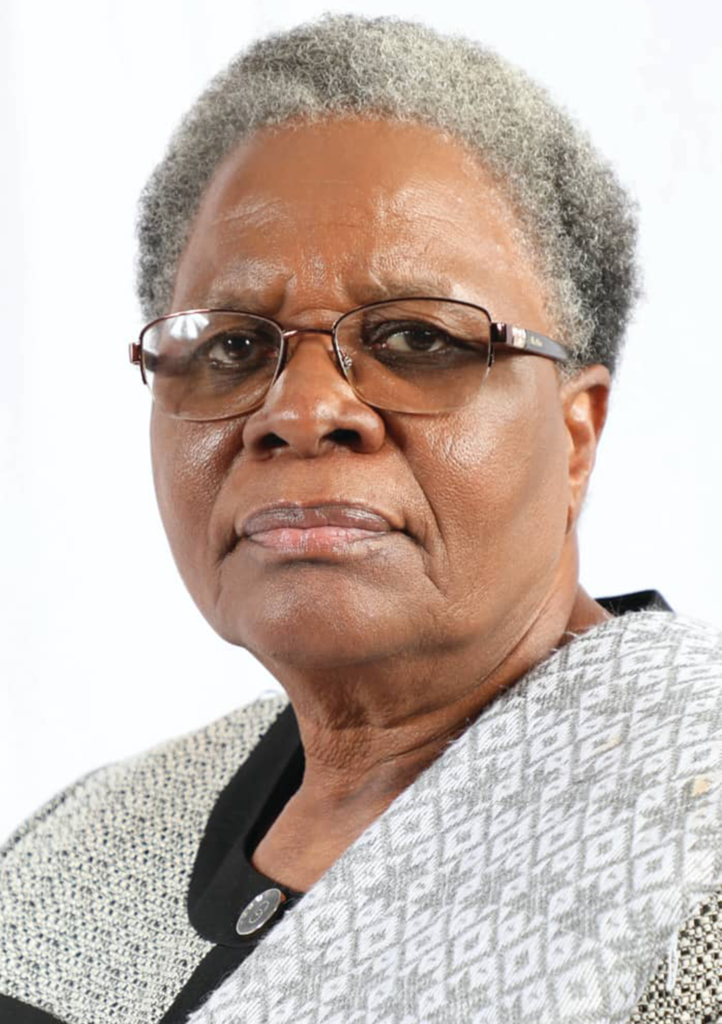
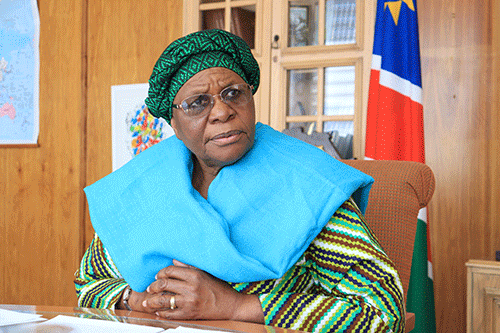
However, the constitutional landscape brings attention to Article 28, which prohibits the Vice President from concurrently holding the roles of Minister of International Relations and Deputy Prime Minister.
As a result, Tyitende asserts, “these positions are now vacant as Article 28 of the Constitution is unambiguous about the person appointed to the position of Vice President.”
Article 28(2A) outlines that the Vice President shall: (d) not at the same time be the Prime Minister, the Deputy Prime Minister, a Minister, or any other office bearer in the Government of Namibia.
Namibia finds itself at a crossroads following the untimely death of President Hage Geingob.
The constitutional provisions, meticulously designed to address such transitions, have been set into motion, ensuring the continuity of governance.
Former Vice President Nangolo Mbumba now assumes the role of Namibia’s fourth President, marking a historic moment as the first leader who did not come to office through election but, instead, followed constitutional provisions.
As the nation collectively mourns its late leader, it moves forward with a renewed commitment to upholding the values enshrined in its supreme law – the Constitution of Namibia.


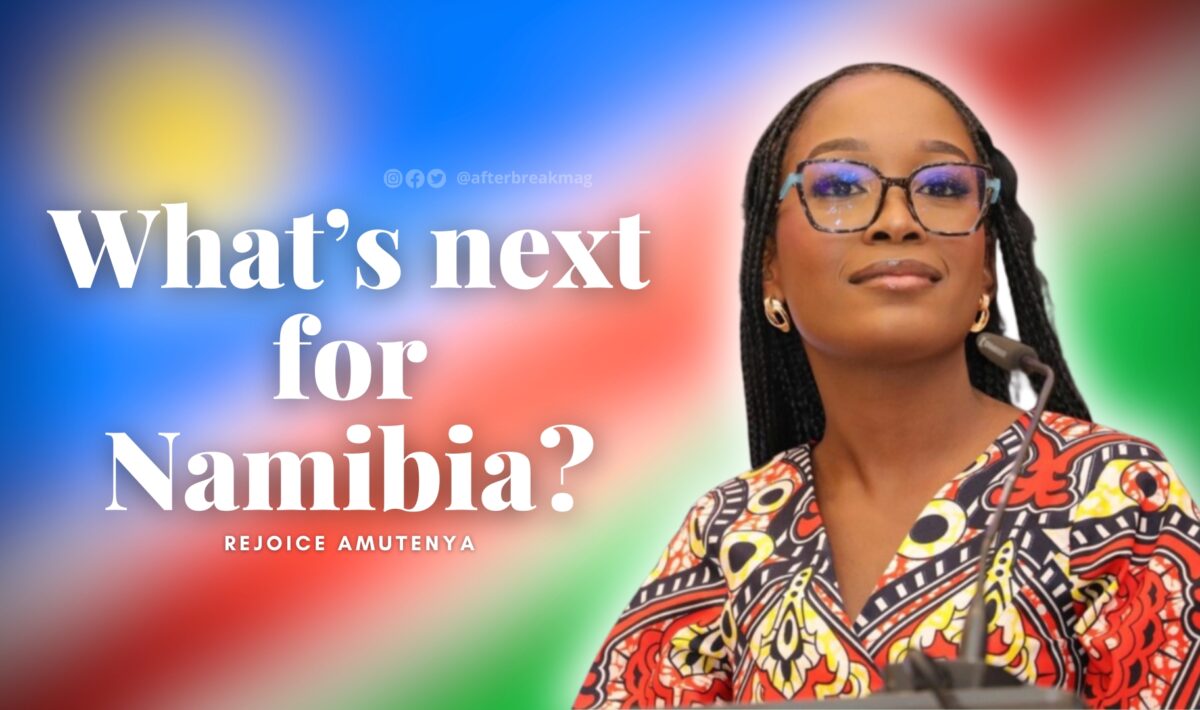

This article enrich me with the legal provision that bring about the succession of the head of state. Thank you legal guru for the deep insight
Thanks for your knowledge shared to the Namibian public, is there no provision in our constitution that provides a grace period to constitute the mourning and burial of the president before appointing the president? As this followed constitution sounds/looks inhumane by urgently appointing the new president well the country is in a mourning period of the departed president.
Governance has to continue regardless of the fact that we’ve lost a sitting President. This is due to the fact that, if there was a provision of grace period or mourning period as you state, that means that the country remains without any commander in chief, as such can only be the president & that places the country at risk..
Very insightful information, thanks for sharing.
Very insightful information, thanks for sharing Rejoice. I appreciate the time and effort you put into your work ????
Very insightful, Thank you for sharking
Many thanks Rejoice for sharing. Insightful and informative!
Governance has to continue regardless of the fact that we’ve lost a sitting President. This is due to the fact that, if there was a provision of grace period or mourning period as you state, that means that the country remains without any commander in chief, as such can only be the president & that places the country at risk..